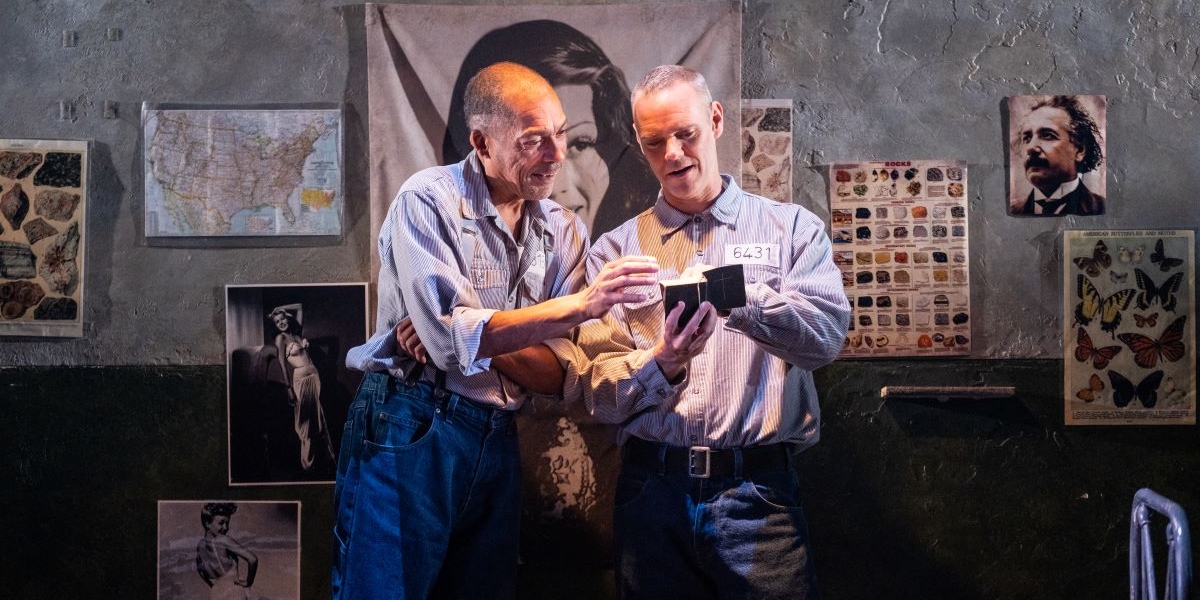I have never seen the film that was made of The Shawshank Redemption, a novella by Stephen King that is not quite his usual kind of horro story; and now I definitely want to, after seeing the play. Partly this is because the play works reasonably well in telling a story that seems to me quite interesting; but partly also because the play for me did not live up to the reputation of the movie.
The ideas in the play, the story about a man wrongfully imprisoned for a double murder, the experiences he has in a prison world that seems to me to be an allegory for society as a whole, the qualities of the characters we focus upon and also the clever twist at the end which redeems the tale, are all interesting. Sadly, I have to report that for me the theatre version of this iconic story – adapted from the original novella and not from the movie – seemed to me just about engaging enough but also a bit flat.
For one thing, I really didn’t get a strong enough sense of the 20 years that had been passing as the story unfolded; or of the power of the “hope” never to be given up that is at the centre of the tale and of the character of Andy Dufresne until very near the end of the second act. That said, this is a thoroughly professional production and the script and staging seem to me to be fine. I very much liked the way Joe Absolom played the wrongfully imprisoned Andy and his stoic and very calm insistence on his innocence while being forced to adapt, sometimes in morally ambiguous and questionable ways, to the ethos of the prison. Ben Onwukwe stood out not only as Andy’s prison friend and mentor, Ellis “Red” Reding, but also as a strong narrator of the tale. I found Kenneth Jay’s Brooksie both charming and believable.
I felt, however that the ideas of the story – the horrors of the prison, the corruption of the warden, the gang-rapes, the disproportionate punishments and bullying, the miserable guards – hit me mostly intellectually and not really viscerally, as I gather all these things and more hit audiences of the film. There is more life in the second act with the arrival of Tommy Williams, played very appealingly and memorably by Coulter Dittman, and the unfolding of Tommy’s pitiable tale and the contrast of a character who is actually both truly good and rather innocent. The question of the moral choices we make under horrific and questionable circumstances and the results of these choices become more focused with this strand of the tale. I also can report that at the end some of the audience gave the show a standing ovation (well deserved, it has to be said, by a fine piece of ensemble work by the actors) and there were cheers and enthusiastic applause. I am not certain how much of that was because people were reliving the film and projecting their knowledge of it onto the live dramatisation.
Perhaps I was just not as responsive as I might have been to the play itself. I thought that the script was cleverly written for stage and that David Esbjornson certainly got strong performances out of everyone in the cast, including Mark Heenehan as a thoroughly corrupt functionary of a warden, Joe Reisig as Hadley and Leigh Jones as Rooster.
The show is engaging and the story worth knowing. But I strongly suspect that in this case film is a more compelling medium for this Stephen King story.

